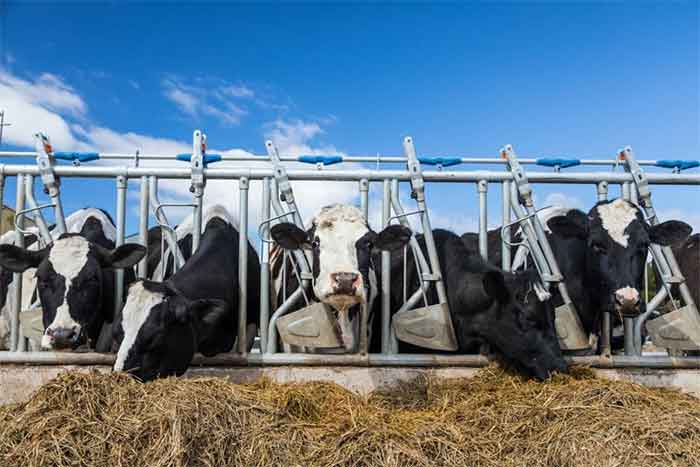
Here is another instance of a large corporate group bringing small farmers to ruin: Danone North America, owner of Horizon Organic, the North American counterpart of the French food products major, has left 89 organic dairy farm families high and dry, suddenly pulling the plug on the company’s operations in the northeast of the United States.
Petitions with over 15,000 signatures of farmers and consumers have been handed to executives of the company seeking that they take responsibility for the economic devastation created by cutting off contracts with the 89 family farms.
On November 18, representatives of affected farmers met company officials with suggestions for how to ameliorate the crisis caused by the sudden cessation of the contract. Danone was requested to stay in the region and invest in a processing plant that would make supply chains more efficient and reduce truck miles. Grace Oedel, executive director of the Northeast Organic Farming Association, said, according to a press release from the farmers: “Horizon Organic has been in the Northeast for two decades and has a long-term relationship with the organic farmers of the region. We want them to stay and invest here.”
The farmers suggested that if Horizon Organic must leave, which it ideally should not, then it could consider offering the necessary support so farmers could make a smooth transition. Severance pay must be granted to farmers who may well need to put an end to their career as dairy farmers. Expensive changes might need to be made in the farms for these farmers to engage with another company. The region is also among the largest organic consumers, and it would help if Danone could aid the farmers at this time.
The farmer families affected have all worked through the pandemic, allowing the corporate player to earn profits. Danone executives, however, explained through spreadsheets with data for three years that operations were no longer profitable. Farmers insist that Danone is a US$500 million company with the ability to fix the crisis.
Farmers are now urging consumers to buy directly from farmers and keep their operations going.
It is pertinent to mention that Danone was recently in the news in India, after news website The Ken reported that a whistleblower, who had long worked as a sales executive with Nutricia International, the Indian arm of the conglomerate Danone, said the firm had been engaging in illegal practices to push its baby feed.
The whistleblower said Danone had been sponsoring trips abroad for doctors, hosting parties with expensive liquor on offer. These are practices that violate India’s Infant Milk Substitutes Act. 1992 (amended in 2003), which prohibits companies from engaging in promotion of milk formula and food for babies. India accounts for 20% of global births, and is a lucrative market for baby food.
It is to prevent crises that affect both farmers and consumers that India’s farmers mobilized and went into protest mode for over a year recently, forcing the government to withdraw the three new farm bills. There is jubilation now that the government has acceded to the demands of farmers and withdrawn the farm bills. The time for celebrations, however, is not here yet.
Rosamma Thomas is a freelance journalist
Related posts:
Views: 0
 RSS Feed
RSS Feed















 December 14th, 2021
December 14th, 2021  Awake Goy
Awake Goy  Posted in
Posted in  Tags:
Tags: 
















